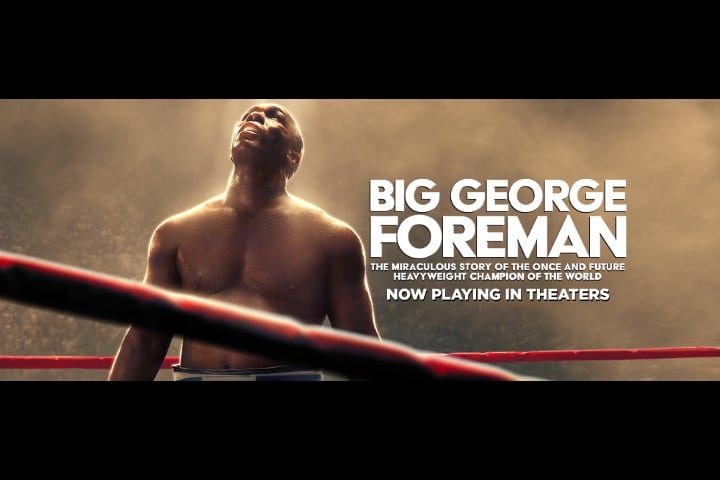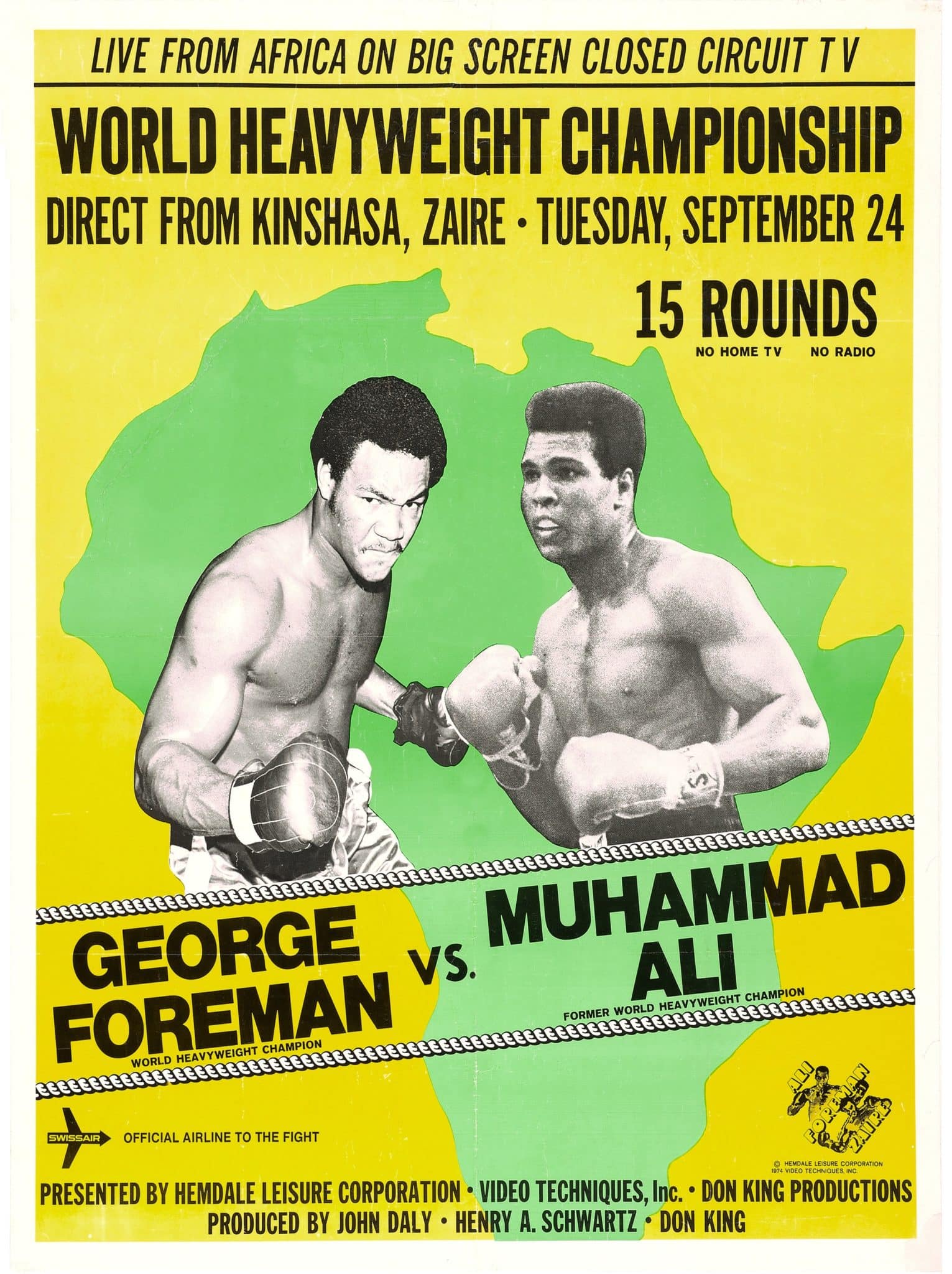
Releasing this weekend nationwide, the biographical film Big George Foreman: The Miraculous Story of the Once and Future Heavyweight Champion of the World tells about the life and life-changing faith of two-time American heavyweight boxing champion, minister, and entrepreneur George Foreman. In the PG-13 film created by Sony Pictures’ faith-oriented studio Affirm Films, viewers are presented with a fulfilling “rags to riches” story that illustrates the importance of faith, character, and family over rage, irresponsibility, and mediocrity, declaring, “If you’re going to fight for anything, fight for faith.”
The film begins in Marshall, Texas, with Foreman, his siblings, and his mother struggling to make ends meet and put food on the table. Despite their penury, George’s mother fully relies on prayer, and shares her faith in the God of the Bible with her children consistently. Viewers are introduced to a young George Foreman who, being very quick to anger, often gets into schoolyard fights, releasing vast amounts of unrestricted rage on anyone who crosses him. After being continually held back and kicked out of school, he turns to crime to make ends meet, and brutally hits rock bottom.
With nowhere else to turn and few options, George signs up for the Job Corps, where he meets his lifelong boxing coach and mentor, Doc Broadus, who offers to train the young misfit in boxing and in life. The pair begin training, and within a year Foreman finds himself on the world stage, at the 1968 Mexico City Olympics, where he won gold by knocking out Russian fighter Ionas Chepulis. In celebration of his victory, Foreman waved a small, handheld American flag, proud to represent his country and the American principles of liberty.
Foreman was later bewildered to discover that two fellow American Olympians, track-and-field athletes Tommie Smith (gold medalist) and John Carlos (bronze medalist), had turned their medal-podium ceremony into an opportunity to protest “racial injustice” by raising their fists rather than placing their hands over their hearts for the national anthem just a few days before Foreman’s big win. Upon returning home to Texas, Foreman was met with harsh criticism from friends who called him a race traitor and a sellout for his display of patriotism. But despite the hostile scrutiny from his peers, Foreman stuck to his guns and his values — a lesson that is seldom shared in movies these days.
Even later in life, at the age of 69, George Foreman reflected on his celebratory flag-waving and stood his ground in an interview with ESPN’s subsidiary website Andscape, saying, “If I had to do it all over again, I would have had two flags in my pocket.”
The film shows Foreman, after the Olympics, generating a massive winning streak, claiming his first heavyweight championship, and amassing wealth, influence, and notoriety. With fame and fortune, though, came temptation and downfall. With no faith or religion, Foreman fed his own desires and destroyed much of his family life. In an interview with Movieguide to promote the film, Foreman spoke about how far he had fallen during this dark stage of his life: “There are a lot of [bad] things left out of the movie, and I wish they would have been left out of my life.”
His career expanded and his winning streak continued. However, at the famous 1974 “Rumble in the Jungle” heavyweight championship, Foreman lost to Muhammad Ali in the eighth round, breaking his streak at 40-1.
The film does an excellent job depicting the action and suspense of a boxing match. At times, it feels as though Foreman is not in a bout against his opponent, but aggressively fighting to live life without God — a fight he could never win, as he would soon discover.
In 1977, he hit rock bottom again, this time in both career and life. Fighting against boxer Jimmy Young, Foreman was brutally knocked down in the 12th round, losing the match. After being escorted to the dressing room, Foreman thought he had died, and in a moment of complete desperation physically and spiritually, cried out, “Jesus Christ is coming alive in me!” From that point forward, George Foreman’s life was permanently changed. He swore to never box again, became a minister, and served his community by buying a church and serving as the pastor while also ministering to his neighborhood through the opening of the George Foreman Youth and Community Center.
Following a devastating near-bankruptcy, Foreman decided to enter the ring once again. In a picture-perfect ending destined for the silver screen, Foreman, at the age of 45, defeated Michael Moorer (age 26) to become a two-time heavyweight boxing champ. Now relying on a power higher than his own strength, the champion immediately took a knee — not in protest, but in thanksgiving and prayer to God.
This film pulls no punches in sharing the inspiring and true story of George Foreman and his incredible testimony of faith in God. And with George Foreman himself serving as one of the executive producers for the film, you can bet it will be a knockout.





